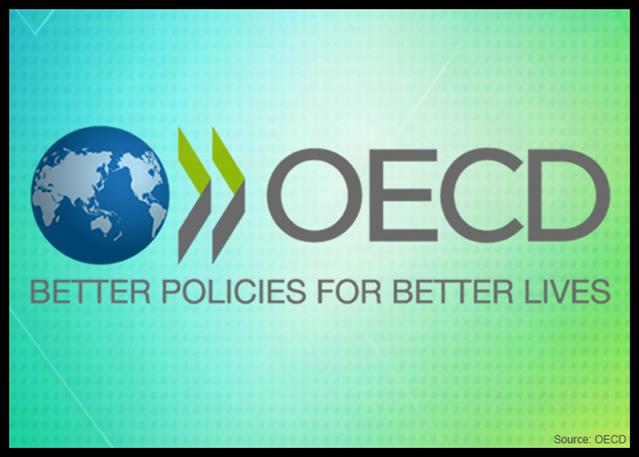
The Organization for Economic and Co-operation and Development on Thursday lifted the global growth forecast for this year and next despite some substantial concerns about the outlook.
The Paris-based think tank raised the global growth forecast for this year to 3.1 percent from 2.9 percent projected in February. The outlook for next year was lifted to 3.2 percent from 3.0 percent.
The overall risks around the outlook are becoming better balanced, but substantial uncertainty remains, the OECD said.
Headline inflation in the G20 economies is projected to ease gradually, led by fading cost pressures.
The OECD forecast inflation to slow to 3.6 percent next year from 5.9 percent this year. The think tank expects inflation to be back on target in most major economies by the end of 2025.
“This recovery is unfolding differently across regions. The United States and a number of large emerging markets continue to exhibit strong growth, in contrast to European economies,” OECD Chief Economist Clare Lombardelli said.
“The mixed macroeconomic landscape is expected to persist, with inflation and interest rates declining at differing paces, and differing needs for fiscal consolidation.”
The OECD expects the overall macroeconomic policy mix to remain restrictive in most economies. Thus real interest rates are likely to decline only gradually and fiscal consolidation will be mild in most countries over the next two years.
However, China is an important exception, the OECD report said. The country is likely to have low interest rates and significant additional fiscal support in 2024 and 2025.
China’s economic growth was forecast to slow to 4.9 percent this year, and ease further to 4.5 percent next year.
India’s GDP growth was projected at 7.8 percent for fiscal year 2023-24 and at around 6.5 percent each for the following two fiscal years.
The OECD expects the divergence across economies to fade as the recovery in Europe becomes more firmly based, and growth moderates in the United States, India and several other emerging-market economies.
The organisation projected 2.6 percent growth this year and 1.8 percent next year for the U.S., where the fiscal deficit is projected to remain large but tighten modestly.
The Fed is expected to start monetary policy easing in the second half of this year.
Downside risks to the U.S. growth forecast include possible delays in the anticipated policy rate cuts and the imposition of additional trade restrictions, the OECD said, adding that upside risks include stronger-than-expected labor market growth, helping to boost household spending.
Euro area GDP growth was projected to remain weak at 0.7 percent this year, and improve to 1.5 percent next year on the back of a recovery in domestic demand.
Copyright © 2024, RTTNews.com, Inc. All Rights Reserved.















